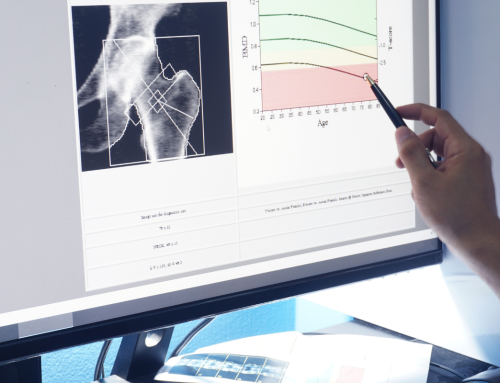
Alcohol is a common part of social gatherings and celebrations, but its impact on health is often overlooked, especially when it comes to bone health. While moderate drinking may not pose a significant risk for most people, excessive alcohol consumption can have severe consequences for your bones. Understanding the relationship between alcohol and bone health is essential for making informed decisions that can protect your skeletal system and overall well-being.
How Alcohol Affects Bone Health
Before learning how alcohol affects bones, it’s important to understand the vital role bones play in our bodies. Bones provide structure, protect organs, anchor muscles, and store calcium. They are living tissues that undergo continuous remodeling throughout life, balancing between bone formation and bone resorption (the process where the bone is broken down and its minerals are released into the bloodstream).
The Impact of Alcohol on Bone Formation
Excessive alcohol consumption disrupts the balance between bone formation and bone resorption, leading to a net loss of bone density over time. Alcohol interferes with the function of osteoblasts, the cells responsible for forming new bone. When osteoblast activity is inhibited, bone regeneration slows down, resulting in weaker bones more prone to fractures.
Alcohol and Bone Mineral Density (BMD)
Bone Mineral Density (BMD) measures the amount of minerals, such as calcium, in a specific volume of bone. BMD is commonly used as an indicator of bone strength and is often assessed to diagnose conditions like osteoporosis. Research has shown that heavy drinking can lead to a decrease in BMD, increasing the risk of osteoporosis and fractures. Women, particularly postmenopausal women, are at a higher risk of alcohol-related bone density loss due to the natural decline in estrogen levels, which are critical for maintaining bone density.
How Alcohol Leads to Bone Loss
The detrimental effects of alcohol on bone health extend beyond just the direct weakening of bone structure; it also influences various physiological processes that are crucial for maintaining strong, healthy bones. Let’s explore this in detail:
Nutritional Deficiencies
Alcohol can interfere with absorbing essential nutrients vital for bone health, such as calcium, vitamin D, and magnesium. Calcium is essential for maintaining strong bones, while vitamin D helps the body absorb calcium effectively. Chronic alcohol consumption can lead to deficiencies in these nutrients, weakening bones and increasing the risk of fractures.
Hormonal Imbalances
Alcohol affects the endocrine system, leading to hormonal imbalances that can further impact bone health. For example, alcohol can decrease the levels of testosterone in men and estrogen in women, both of which are hormones essential for maintaining bone density. Lower levels of these hormones can accelerate bone loss and increase the risk of osteoporosis.
Increased Risk of Falls
One of the more immediate dangers of alcohol consumption is the increased risk of falls and injuries. Alcohol impairs coordination, balance, and judgment, making falls more likely. For someone with already weakened bones, a fall can easily lead to fractures, which can have long-lasting effects on mobility and quality of life.
How Much Alcohol Is Too Much?
While the effects of alcohol on bone health are more pronounced with heavy drinking, even moderate drinking can have an impact, especially in individuals with other risk factors for osteoporosis. The Centers for Disease Control and Prevention (CDC) defines moderate drinking as up to one drink per day for women and up to two drinks per day for men. Exceeding these limits regularly can increase the risk of bone density loss and other health issues.
Bone density reaches its peak in early adulthood, after which it begins to decline. Young adults who engage in heavy drinking may impair their ability to achieve optimal bone density, setting the stage for osteoporosis later in life. It’s crucial for young people to be aware of the long-term effects of alcohol on their bones and to make informed choices about their drinking habits.
Protecting Your Bones: Tips for Healthy Living
Other than limiting alcohol consumption, there are more ways to protect your bones and set your future self up for skeletal success.
Maintain a Balanced Diet
A diet rich in calcium, vitamin D, and other bone-healthy nutrients is essential for maintaining strong bones. Dairy products, leafy green vegetables, fortified foods, and fish like salmon and mackerel are excellent sources of these nutrients. If you consume alcohol, be mindful of how it might affect your nutrient absorption, and consider taking supplements if necessary.
Engage in Regular Exercise
Weight-bearing exercises like walking, running, and strength training are crucial for maintaining bone density. Regular physical activity helps stimulate bone formation and strengthen muscles, supporting and protecting your bones.
Limit Alcohol Consumption
Limiting alcohol intake is one of the most effective ways to protect bone health. Stick to the CDC guidelines for moderate drinking, and if you have a history of osteoporosis or other bone conditions, it may be best to avoid alcohol altogether.
Avoid Smoking
Smoking is another major risk factor for bone loss. The combination of smoking and drinking can significantly increase the risk of osteoporosis, so quitting smoking is also a key step in protecting your bones.
Monitor Your Bone Health
Regular check-ups with your healthcare provider and BMD tests can help monitor your bone health and detect any early signs of osteoporosis. If you are at risk, early intervention can significantly prevent fractures and maintain mobility.
Support Your Bone Health with Proactive Solutions
Alcohol consumption, particularly in excess, can have a profound impact on your bone health, increasing the risk of osteoporosis and fractures. By understanding the risks and taking proactive steps such as maintaining a balanced diet, engaging in regular exercise, and limiting alcohol intake, you can protect your bones and overall health.
For those looking for additional support in maintaining strong bones and muscles, the Marodyne LiV device offers a safe, patent-pending, scientifically established solution. This innovative low-vibration device gently stimulates muscles and bones, helping to naturally improve muscle strength, function, and circulation. By incorporating the Marodyne LiV device into your daily routine, you can actively support your bone health and enhance your quality of life.
Invest in your health today and experience the benefits of improved muscle strength and circulation naturally and safely. Contact Marodyne LiV to learn more.
Do you find it challenging to stay within the CDC’s recommended alcohol guidelines? What tips would you give someone trying to cut back on alcohol consumption? Share your thoughts with our readers in the comments below.




 Black Friday → Christmas Sale! Save $300 + Free Shipping
Black Friday → Christmas Sale! Save $300 + Free Shipping 